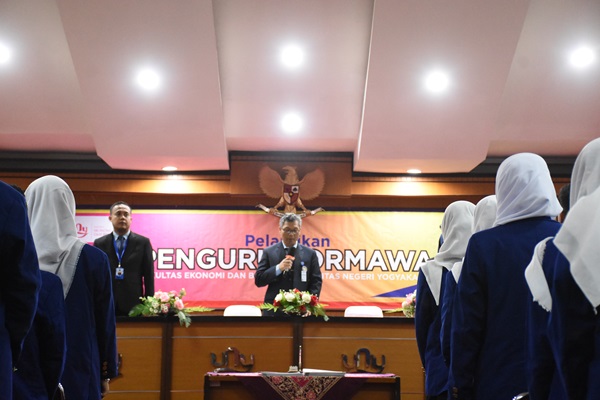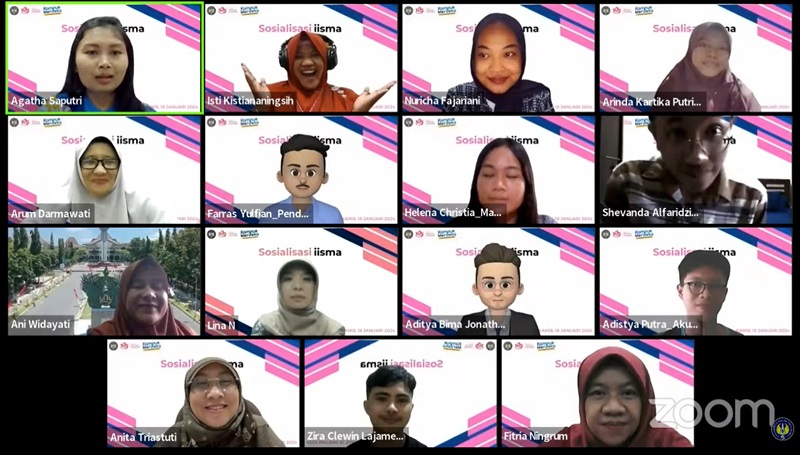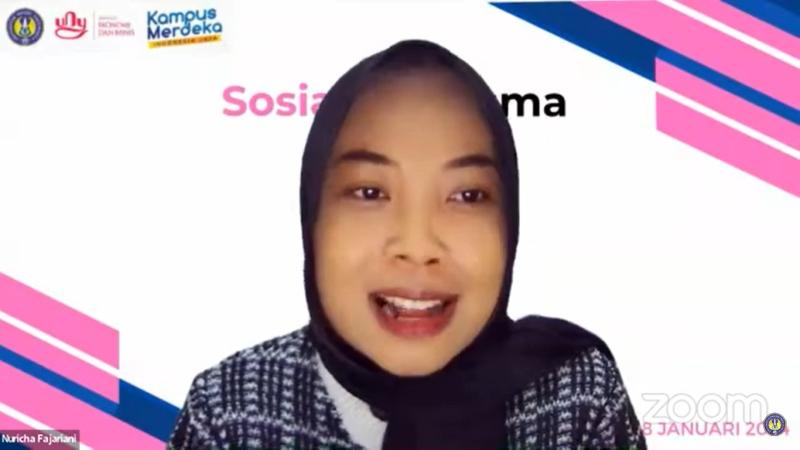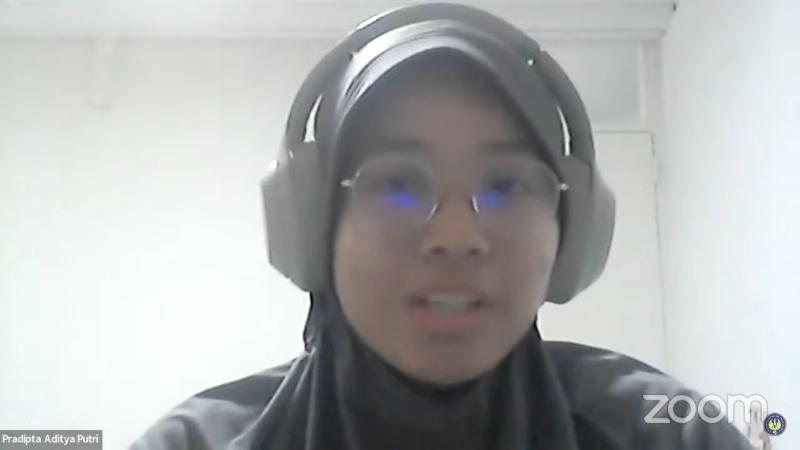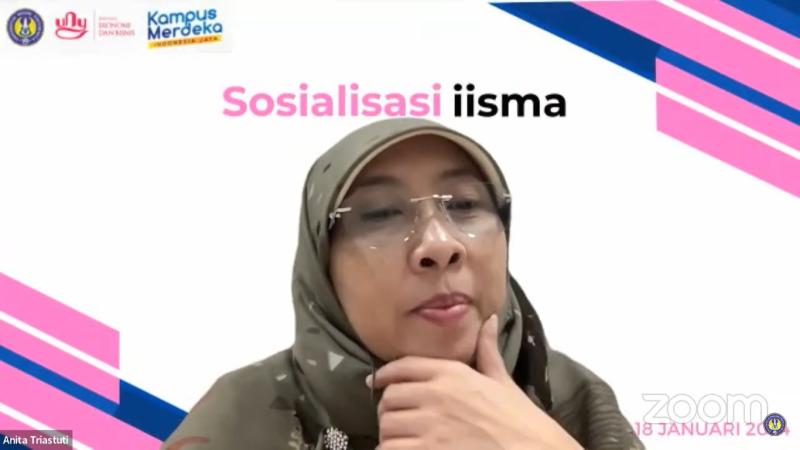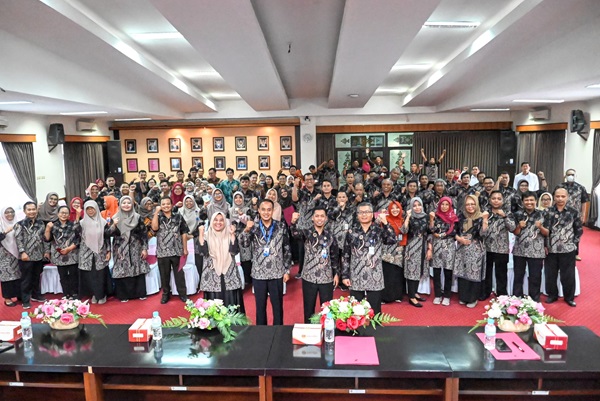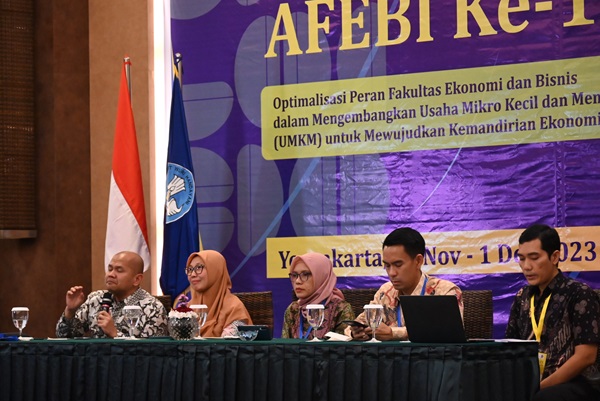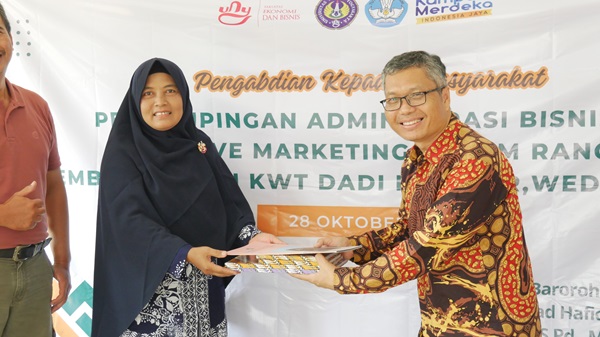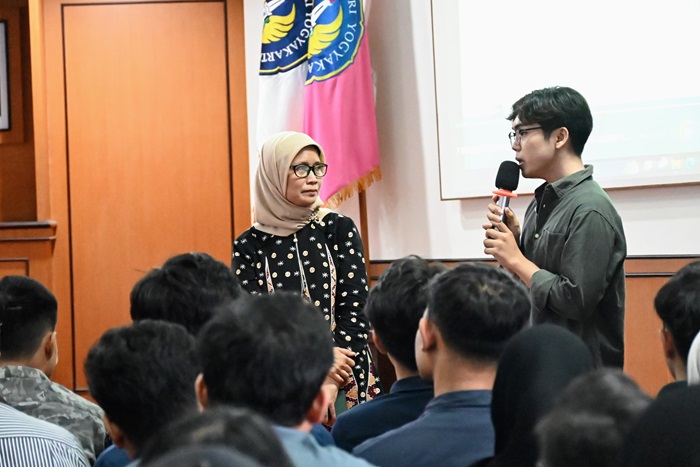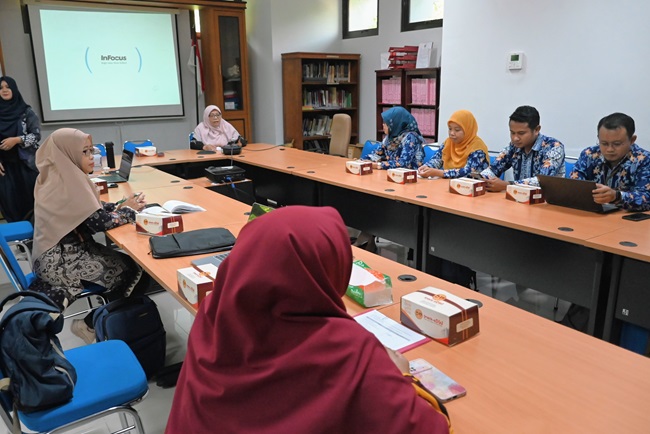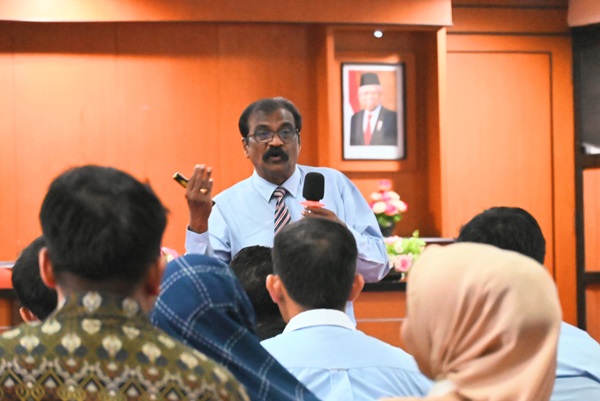FEB UNY Gelar Workshop Olah Topik PKM
Submitted by feb on Wed, 21/02/2024 - 14:08
Fakultas Ekonomi dan Bisnis Universitas Negeri Yogyakarta (UNY) mengadakan Workshop Identifikasi Topik PKM Berbasis Keilmuan pada Kamis (25/1) lalu. Acara yang dihadiri oleh sekitar 70 mahasiswa dan dosen pembimbing tersebut bertujuan untuk mendorong partisipasi FEB UNY dalam kompetisi ilmiah tingkat nasional, khususnya Program Kreativitas Mahasiswa (PKM).
Dalam sambutannya, Dr. Sutirman, M.Pd. selaku Wakil Dekan Akademik, Kemahasiswaan dan Alumni, menyampaikan terima kasih kepada semua mahasiswa yang hadir. Beliau mengapresiasi kehadiran dan keterlibatan mahasiswa dalam kegiatan ini meskipun masih belum dalam masa aktif kuliah. Mahasiswa diharapkan dapat menjadi "pejuang" yang membawa FEB UNY berpartisipasi aktif dalam berbagai kompetisi ilmiah, terutama PKM.
PKM merupakan kompetisi ilmiah tingkat nasional yang memiliki skor yang lebih besar dibandingkan kompetisi lainnya. “Manfaat dari mengikuti PKM antara lain adalah memperoleh jejaring lintas prodi dan lintas fakultas, mendapatkan dana hibah untuk pengembangan kegiatan PKM, dan kemungkinan meng-konversi prestasi PKM menjadi nilai mata kuliah,” urai Sutirman.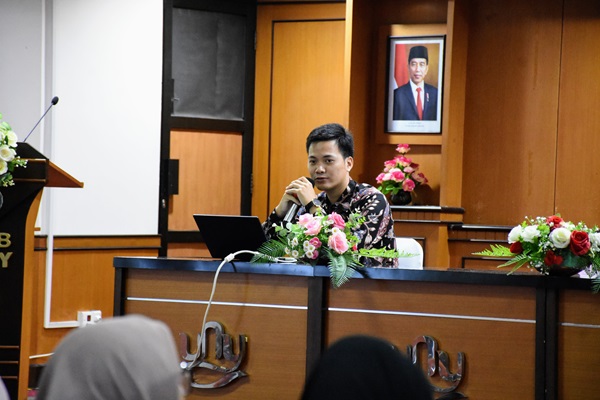
Workshop ini menghadirkan materi dari dosen Arwan Nur Ramadhan, M.Pd., yang memberikan pandangan tentang pentingnya meningkatkan kualitas PKM. Ia menganalogikan perjalanan prestasi PKM di FEB UNY seperti sedang menaiki tangga, di mana saat ini prestasi PKM FEB UNY masih berada di lantai bawah dan perlu terus ditingkatkan. Arwan juga menyoroti beberapa faktor yang mempengaruhi kualitas PKM, di antaranya yaitu judul yang redaksional, latar belakang yang kuat, tujuan yang spesifik dan dapat diukur, serta metode yang holistik.
Sesi brainstorming ide dan topik PKM dipandu oleh dosen Ilham Ramadan Pandu Setia Negara Siregar, S.A.B., M.A.B. dari Departemen Pendidikan Administrasi. Para kaprodi bersama dengan pembimbing dan pengurus himpunan mahasiswa (HIMA) diharapkan dapat membantu mahasiswa dalam mempersiapkan diri untuk berkompetisi dalam PKM. Melalui kerjasama dan dukungan ini, diharapkan Fakultas Ekonomi dan Bisnis UNY dapat meraih prestasi yang gemilang dalam kompetisi tingkat nasional. (fdhli)


